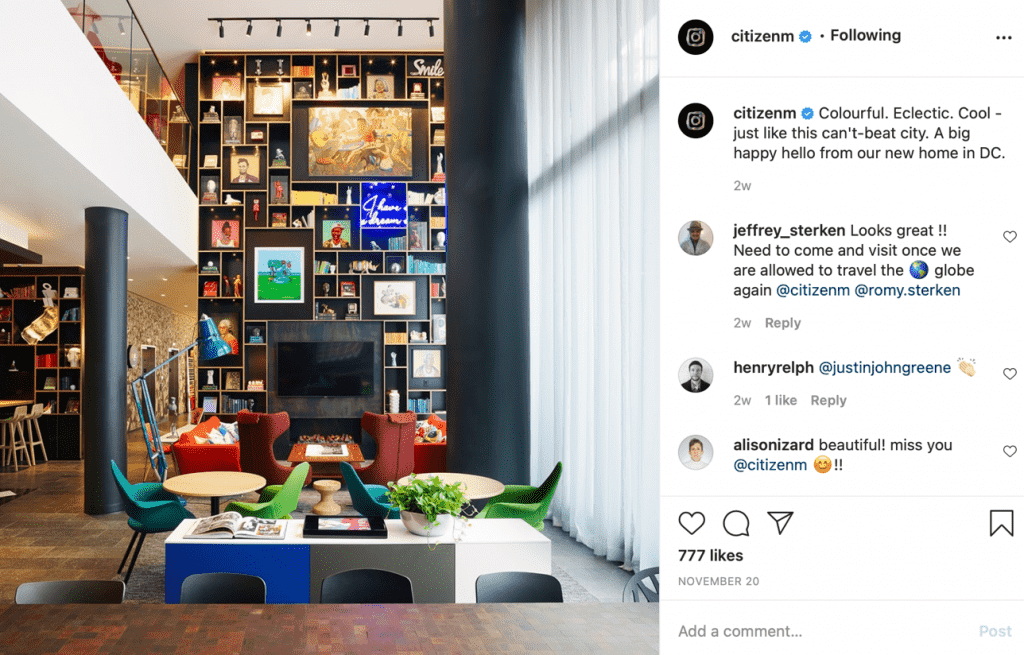How to Develop a Digital Marketing Strategy for a Hotel Business
Besides food, water, and shelter, we now also consider the internet as a basic necessity of life. The travel industry has been revolutionized because of the internet and booking a hotel has now become an activity that begins with an online search.
This means that you now need an effective hotel digital marketing strategy to build and maintain your digital presence on all the major social media platforms such as Facebook, Twitter, and Instagram apart from Google and Bing.
A holistic digital marketing strategy will not only build awareness but also expand your reach, increase visibility, fortify your brand, and increase your bottom line by bringing you more bookings.
Let’s look at a few ways you can get started on building your strategy.
Digital Marketing Strategy for Hotel Is Based on Sound Revenue Data
Analysis of your sales pipeline and revenue numbers can reveal actionable insights into how you should be segmenting your audience based on demographics, duration of stay, affluence, and purpose of booking.
Knowing this information is vital if you want to build a robust hotel digital marketing strategy. For example, market segmentation based on the purpose of the booking will tell you how long of a sales conversion cycle is required to convert a lead.
Business bookings are usually quick and convenience-driven, whereas leisure bookings have a longer conversion cycle due to the discovery and planning process involved. Both of these types of booking will require a unique marketing approach.
Similarly, your pricing strategy and competitive analysis can further guide you on your unique value proposition. If your rooms are priced higher, you might want to focus your messaging around quality service and luxury.
There’s already a lot of data being created by your revenue management systems. Use that data to segment your audience and build buyer personas that can better inform your hotel’s digital marketing strategy.
Improve Your Search Ads Performance and Visibility
With all online purchase behaviour starting with search, SEO is more important than ever. Researching hotels, comparing prices, booking rooms, creating an itinerary, everything starts with an online search.
First the basics:
- Your website should be quick to load on mobile and desktop.
- Your website architecture/sitemap should be logical so that it is easy to crawl.
- You should aim to rank high on a few strategic keywords.
- You should regularly conduct an SEO audit to track performance and find improvements.
Keyword research and customer intent should form the basis of your SEO strategy. Be as specific as possible with your keyword strategy. For example, instead of ‘hotels in Montreal’, rank for ‘budget-friendly hotels in Montreal’.
Create content like blogs and guidebooks that can help you with back-linking. The better your content, the higher chances of getting backlinks from authoritative websites. This will in turn improve your search rankings.
As is with SEO, your search performance also depends upon your Search Engine Marketing (PPC) or Google Ads.
Google Hotel Ads are a useful way to target prospects that are ready to book. For prospects with a longer conversion cycle, traditional Google Ads work better.
Google Ads will appear on the top of the search results thus helping potential customers to see you first. You can optimize these ads by using long-tail keywords in your ads as well as your website.
Feel free to A/B test and experiment with your landing page, images, and copy. This will help you understand what works for your hotel!
Tell Your Story on Social Media!
It is now standard practice to have a social media presence on Facebook, Twitter, LinkedIn, and Instagram. But to make the most of social media you’ll have to think beyond that.
 Post fun and entertaining content on your social media channels. The narrative you create for your brand on social media is how your audience will perceive you.
Post fun and entertaining content on your social media channels. The narrative you create for your brand on social media is how your audience will perceive you.
You are more likely to gain a larger following by posting light-hearted content that talks about your hotel culture, hospitality, amenities, and service than with more formal content like a brochure.
Going live for special events is also a great way to amass a following and engage with your target audience. Almost all social platforms (including YouTube) now have this feature.
But most importantly, social media is a two-way conversation. Listen to what your customers and prospects are saying about your hotel online using social media listening tools.
Re-sharing posts your followers tag you in and jumping in to solve any bad experiences they’ve shared is a great way to build a positive online image and get a good review.
To sum up, hotel digital marketing is indispensable. Learn from the data you’re creating, build a positive online social media presence, and personalize your digital marketing strategy for your top customers.
In the meantime, you can also request a Digital Marketing Strategy from us and see if we are a good fit to work together.



